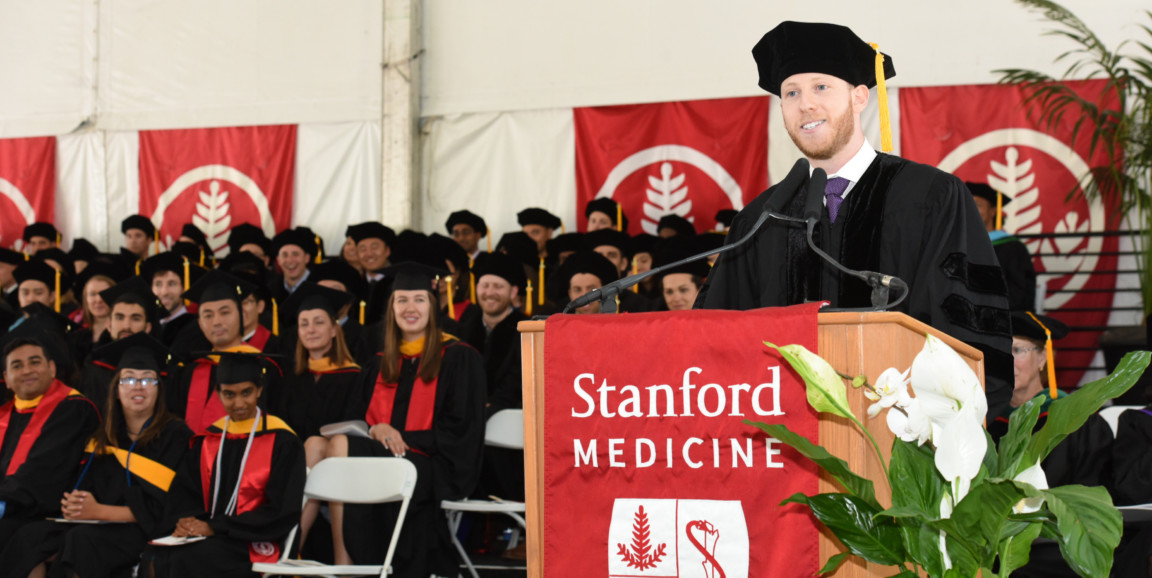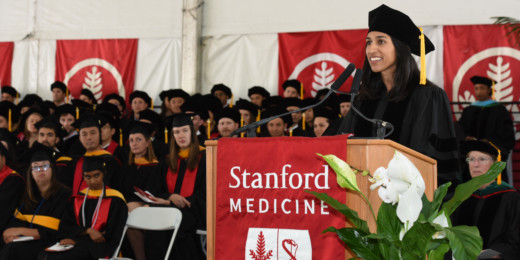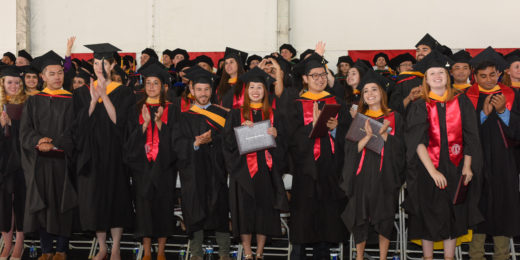Much like my colleagues, I've spent the last several years learning just how much I didn't know — so for me to impart words of wisdom at the end of such journey seems out of place. Furthermore, there's no single path to attain a PhD; each one of ours was different. But there's one thing we all learned how to do very well, regardless of the discipline-specific jargon we may choose to overwhelm you with. We learned how to fail.
So here we go, three lessons from failing.
Lesson one: Working hard doesn't guarantee success, nevertheless success requires hard work. This was a tough one to learn. Many of us arrived at Stanford as the top students of our respective undergraduate institutions, with an unfortunate misconception: It will work if you just put enough time and all-nighters into it. While this is generally true when your path is clearly paved, scientific research doesn’t work that way. The living systems we study are complex and unpredictable, our hypotheses are daring, and we must first develop the tools we need to answer our questions.
As we learned to overcome the challenges we've set before us, we mastered a combination of grit and creativity. This means that following long hours, days, and months culminating in disappointment, we returned to the bench, our eyes red and our blood fueled with determination, curiosity, and caffeine, ready to confront our challenge from a completely different direction.
Here at Stanford, we've spearheaded the notion that the problems we seek to understand, which would have the most profound impact on our society, have roots in numerous fields. To solve them, we had to cross traditional academic boundaries. We learned to be humble as we dove into new disciplines, guided by an ill-defined path, hoping that this time we might find our answer, even if it means failing again.
Lesson two: Find those who believe in you and ask them for help. I learned this one early on, back in middle school as a new immigrant. It turns out that the bigger you dream and the more broken your English sounds when expressing those dreams, the fewer people will be there to cheer you on as you pursue them. A few months after landing in the United States, still unable to form complete sentences in English, I decided to enter our middle school’s spelling bee. Let me clarify — this isn't a miraculous graduation story. I crashed on the first word and was ridiculed by the classmates around me. Middle schoolers can get mean, but reviewer #2 will likely be meaner.
Much like learning a new language in a new country, the PhD experience gets isolating. I owe my sincere gratitude to the rare few back in middle school who didn't overlook my presence and capabilities. They empowered me to find the voice that you are hearing today.
We wouldn’t have crossed our finish line if it weren’t for those who picked us up at our lowest. Our advisers and mentors pushed us, demanded more, but patiently reassured us. Our friends listened to us, carried our fears, and celebrated our victories, big and small. And our families sacrificed for us, believing in us at times when we did not believe in ourselves. Failing meant learning that you can't always do it alone and that it is okay to find and ask for help.
Lesson three: Facing and overcoming obstacles drives innovation. We now know to appreciate that if it were easy, someone else would have done it before us. To truly advance our knowledge and move our society forward, we must accept that there will be setbacks, that the path ahead will rarely be visible, and that we'll fail before we succeed. After watching them fail, bounce back, relentlessly chase hidden truths, and thrive, I'm confident that there are no others more poised to rewrite textbooks, discover the next cure, and change policy than my fellow classmates.
I’d like to end with some wishes as we begin our journey to become leaders in our respective fields. You are now scholars. You know how hard it is to uncover true knowledge, so never settle for anything less. Be daring and creative as you seek solutions to change and improve the world around you. When you discover something new, share it. Remember that you didn't get your doctorate alone. Mentor, inspire, listen, and care for others in the same way people have done for you so that you can be here today. And finally, don’t be afraid to fail.
Opher Shai Kornfield, PhD, is part of the 2018 graduating class in chemical and systems biology. This is an excerpt from his recent commencement speech.
Photo by Steve Fisch






